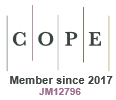
Historical Records of Australian Science
Volume 34 Number 1 2023
HR22019 Full Text | HR22019PDF (609 KB) Open Access Article
HR22010The Australian Coral Reef Society: the last 40 years of a century working with Australia’s coral reefs

We review ACRS activities under the following themes: consulting on the Capricorn Bunker Group to zone the Great Barrier Reef Marine Park, marine protected area design, water quality on the GBR, Queensland port expansions, environmental reform for the offshore oil and gas industry and the impacts of climate change on Australian reefs. We outline how the ACRS has promoted the exchange of scientific information to protect and conserve Australian reefs for a 100 years.
HR22010 Abstract | HR22010 Full Text | HR22010PDF (4 MB) | HR22010Supplementary Material (517 KB) Open Access Article
HR22009The remarkable contributions of ten outstanding women to Australian coral reef science

This paper highlights the critical role that women have played in Australian coral reef science over the last 90 years, through documenting the biodiversity, ecology and functioning of coral reefs. The scientific contributions of ten outstanding women are summarised, along with how they broke down barriers by working on oceanographic vessels and undertaking research in remote areas, while also using their expertise to advocate for the management and conservation of Australia’s diverse coral reefs.
HR22009 Abstract | HR22009 Full Text | HR22009PDF (3.5 MB) Open Access Article
HR22006A history of CSIRO’S Central Australian Laboratory, 1: 1953–80: pastoral land research

When CSIRO’s Arid Zone Unit was established in Alice Springs in 1953, the social and political imperative was to develop Australia’s north and, more specifically, to make the vast interior more productive for pastoral and agronomic purposes. The research that followed showed the unreality of that goal and the need to nurture the land that cattle preferred to graze. Not until the 1970s were other values for land, such as Aboriginal and conservation uses, considered to be subjects for research, stimulated by social and political change in the wider Australian community.
HR22006 Abstract | HR22006 Full Text | HR22006PDF (3.7 MB) | HR22006Supplementary Material (623 KB) Open Access Article

The changing nature of research at CSIRO’s Central Australian Laboratory over many decades reflected major shifts in societal expectations, the availability of new knowledge and enabling technologies and the particular skills of its staff. This paper follows the expansion of research from a pastoral focus into, initially, conservation and later into socio-ecological systems and Aboriginal livelihoods. Despite the relevance of the research to participating rangeland communities, the power of remote centralised decision-making led to the slow demise of the laboratory.
HR22007 Abstract | HR22007 Full Text | HR22007PDF (1.2 MB) | HR22007Supplementary Material (3 MB) Open Access Article

Guy Kendall White, 1925–2018, had a productive research career studying the transport and thermophysical properties of solids at low temperatures. In 1959 he authored Experimental Techniques in Low-Temperature Physics, which came to be regarded as an essential handbook for those doing low-temperature physics. He was a world leader in the field of thermal expansion in solids at low temperatures, and produced important compilations of thermophysical data, which are of great value to technologists, scientists and engineers.




